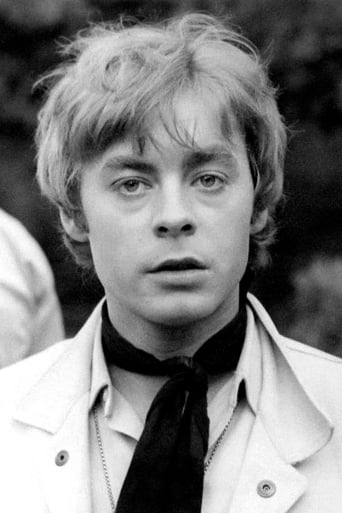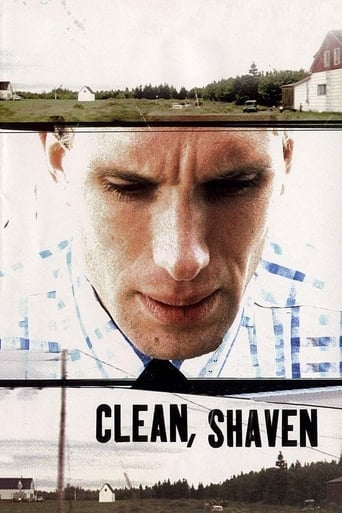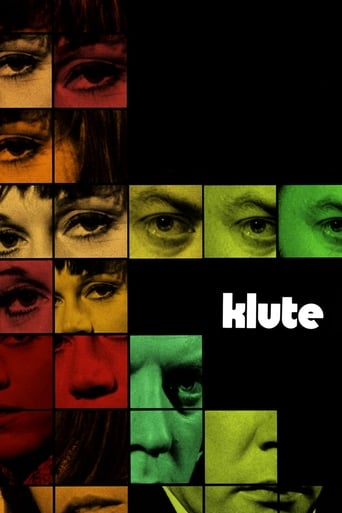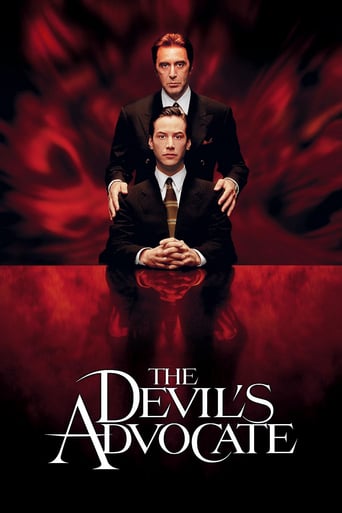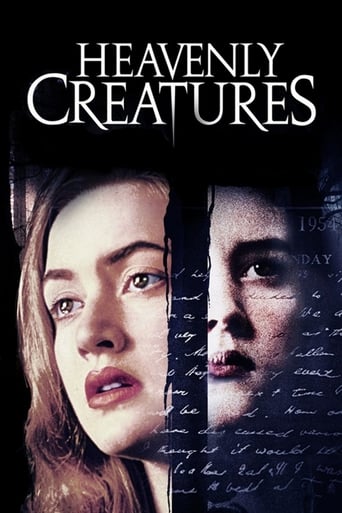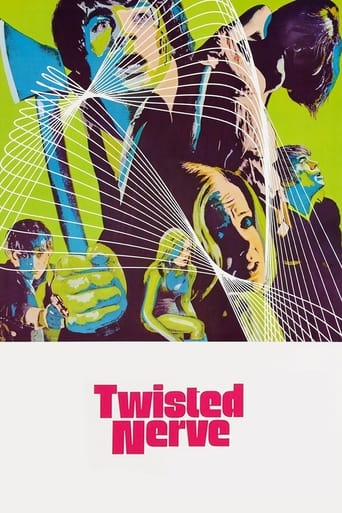
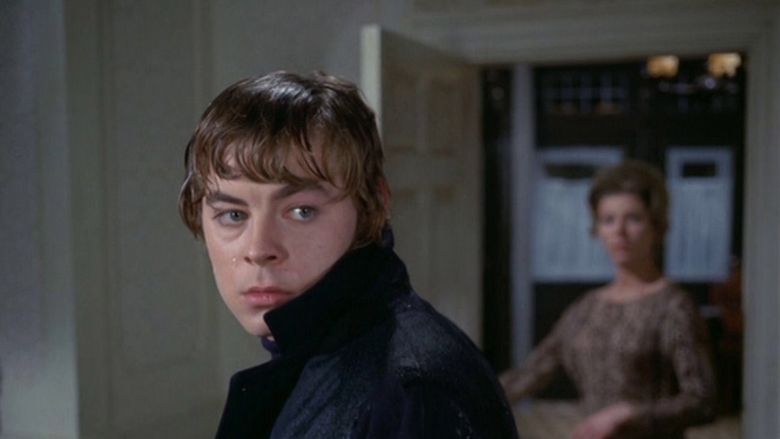
Twisted Nerve (1968)
Martin Durnley is a young man with an infantilizing mother, resentful stepfather and an institutionalized brother with Down's syndrome. To cope, he retreats into an alternate child personality he calls Georgie. After being caught during a theft attempt at a department store, he befriends a female customer who is sympathetic to him, but his friendship soon turns into obsession.
Watch Trailer
Cast
Similar titles
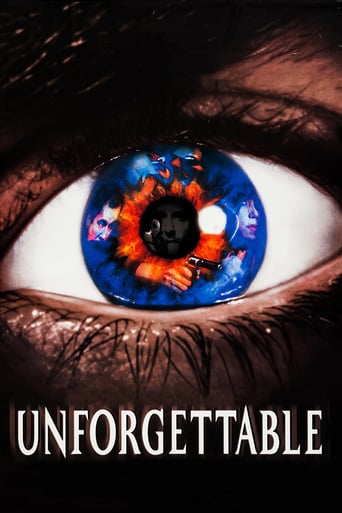
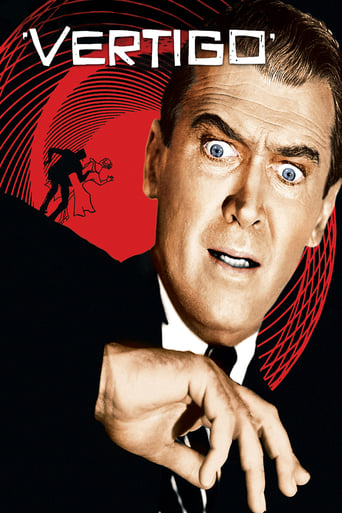
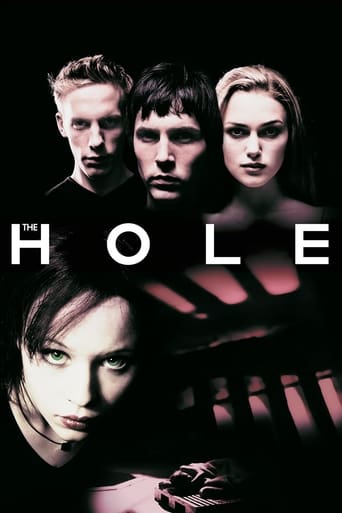
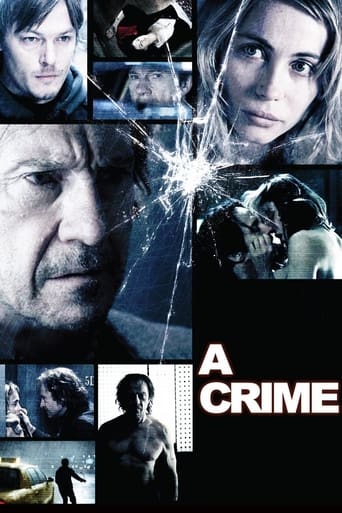
Reviews
That was an excellent one.
Better Late Then Never
For having a relatively low budget, the film's style and overall art direction are immensely impressive.
A terrific literary drama and character piece that shows how the process of creating art can be seen differently by those doing it and those looking at it from the outside.
Like many I knew this film only from the review in Phil Hardy's "Encyclopedia of Horror Films." Based on that I expected a piece of totally exploitative trash that would prove highly offensive. Having now seen it, I ask "what film did he watch?" The Twisted Nerve I just watched is a surprisingly good, well made thriller that does not deserve it's critical drubbing or audience ignorance (It is also not a Splatter" movie as the review states). Back in the day it seems that it caused a firestorm of controversy in it's native England as many mistook Martin/Georgie's split personality for mental retardation. It is his brother, not Martin, that is mentally retarded and in no way a threat to anyone. Martin is in fact, a split personality. As Georgie, he is a very likable man/child, sweet and innocent. But as Martin, he's cold, calculating, and dangerously clever. I think this makes for a fascinating hero/villain and Hywell Bennet carries it off with extreme effectiveness. Hayley Mills and Billie Whitelaw are at their loveliest, and overall the cast does extremely well. Could be a tad overlong at nearly 2 hours, but the film never drags once. Forget what the critics say and it's controversial legacy. Give it a chance, you'll be rewarded.
When it was first released, "Twisted Nerve" apparently drummed up a whole bunch of controversy from the notoriously squeamish British press. By today's standards, the movie is quite tame - there's not that much violence, and the little there is comes across as somewhat restrained. Despite this, the movie is still interesting to a degree. The performances are very good, particularly Hywel Bennett as the psychopath. However, his convincing performance of someone who is clearly disturbed does lead to a problem, that being that the characters surrounding him can't see how severely mentally ill this guy is. And this goes on far past the breaking point, with a running time of almost two hours in length. I will say that despite the overlength, the movie isn't boring, and it does get you interested enough to stay watching in order to see what will happen. If you are interested in British horror/thriller movies of this period, there's additional interest.
In 1960, two respected British directors debuted shocking psychosexual thrillers, to mixed critical and commercial receptions: Alfred Hitchcock with 'Psycho,' and Michael Powell with 'Peeping Tom.' Both films were shocking in their time, and their influence on low-budget 1960s horror can't be overstated. Roy Boulting's 'Twisted Nerve (1968)' is a typical Hitchcock rip-off, but of the serious, stylish Brian De Palma mould, rather than the schlocky comic-horror of William Castle. The film introduces us to Martin Durnley (Hywel Bennett), the younger brother of a man suffering from "mongolism," the condition now known as Down Syndrome. Though seemingly healthy a birth, it seems that young Martin has developed some psychopathic, psychosexual tendencies, inextricably linked to a chromosomal mismatch at conception. Martin pretends to be mentally-challenged in order to get into bed with the virginal Susan (Disney favourite Hayley Mills, later the director's much-younger wife), only to instead capture the attentions of Susan's lonely mother (Billie Whitelaw) – did I mention this film was rather twisted?Though the film treats its absurd, gloriously un-PC narrative with the utmost seriousness, it is nevertheless startlingly effective at capturing the main character's psychoses. Bennett's performance is menacing and pathetic in equal degree, playing a sort of introverted Alex DeLarge, whose wicked intentions are always bubbling beneath an otherwise honest exterior. 'Twisted Nerve' also features a maddeningly catchy musical theme, memorably recycled in Tarantino's 'Kill Bill: Vol. 1 (2004),' composed by Bernard Hermann, who by this time was estranged from Hitchcock on account of his rejected score for 'Torn Curtain (1967).' Nevertheless, it's clear that Alfred Hitchcock himself both saw and enjoyed 'Twisted Nerve,' as he cast both Barry Foster and Billie Whitelaw in his own back-to-basics British shocker 'Frenzy (1972).' Due to controversy surrounding its depiction of Down Syndrome, the film opens with a spoken announcement that attempts to shirk responsibility for its political incorrectness, but without much luck. I probably wouldn't have it any other way.
I have to agree with other critics of this film because after finally getting the chance to see it, I have realised it does not deliver on any level. The story opens with a disturbed man named Martin being caught stealing a toy from a department store. Following a later argument with his parents, he leaves home and sets up a clever deception built around an attractive girl named Susan (who he encountered while stealing the toy), conning her into thinking he's retarded and moving into her family's small guest house, while at the same time conning his parents into thinking he has taken a trip to Paris. Martin's behaviour is for the most part indecipherable, but one thing's for sure, it's all going to end in tears.The reason, I think, behind the film's failing, is it's pivotal explanation for why Martin is behaving abnormally, which is spurious in the extreme. Based around a medical condition, the film goes to great lengths to show learned doctors discussing just such a topic and how it might affect a sufferer. The trouble is that the script writers did not seem to know what "disturbed" traits to actually give the the character of Martin, so he simply acts erratically, inconsistently and ultimately homicidally just to make the plot exciting. The feeble reasoning behind his behaviour really dates the film, and I can only assume there must have been some research being done at around the time the film was made (1968) that inspired such ideas.At any rate, the film was not well received at the time because of it, and it only appears worse when viewed today. So too does some really appalling racism directed towards an Indian doctor in the film, which is highly embarrassing to watch. The acting on the whole is pretty good, although Hywel Bennett does not instill the character of Martin with any particular depth, and Hayley Mills looks very pretty as Susan and fulfils the role very well although she isn't given very much to do. Much more interesting is Billie Whitelaw as Susan's mother, who makes a real impact with her appearance.Sadly the film itself can't claim to grab the attention. Despite a small sprinkling of blood and murder, things never get really tense or gripping. The overall impression is spoiled by the sheer datedness of the thing, but more importantly, it seems as though the whole thing was written around the expectation that the spectacular psychological revelations would carry it, but as they don't work, the film as a whole doesn't work either. As it stands, it's just another film about a disturbed man causing trouble, and it doesn't really do that very well.

